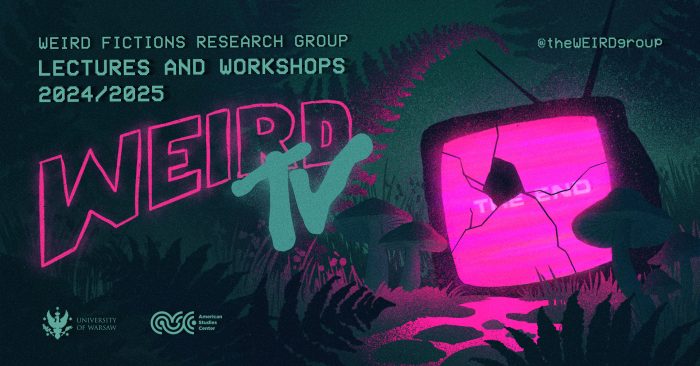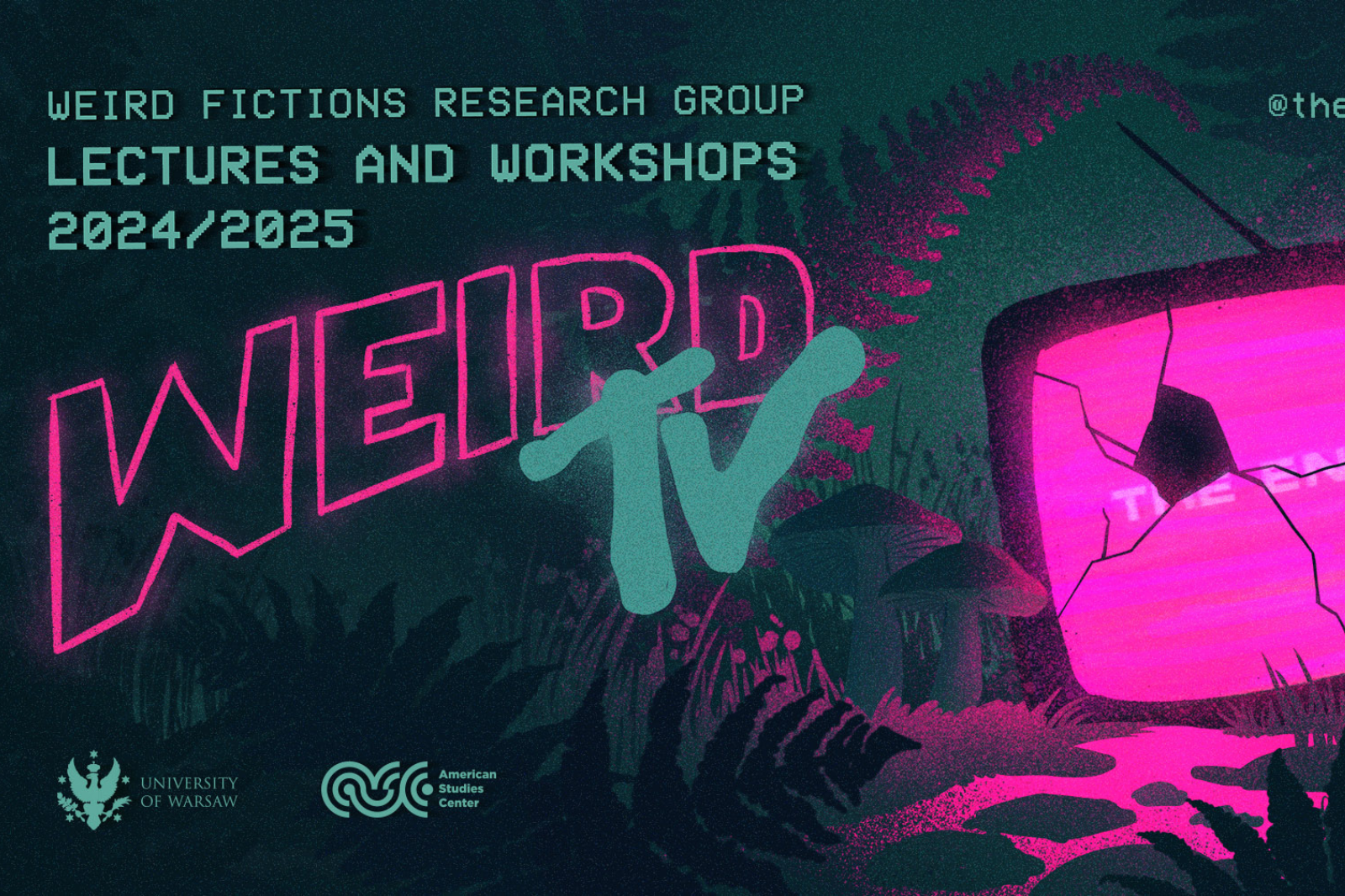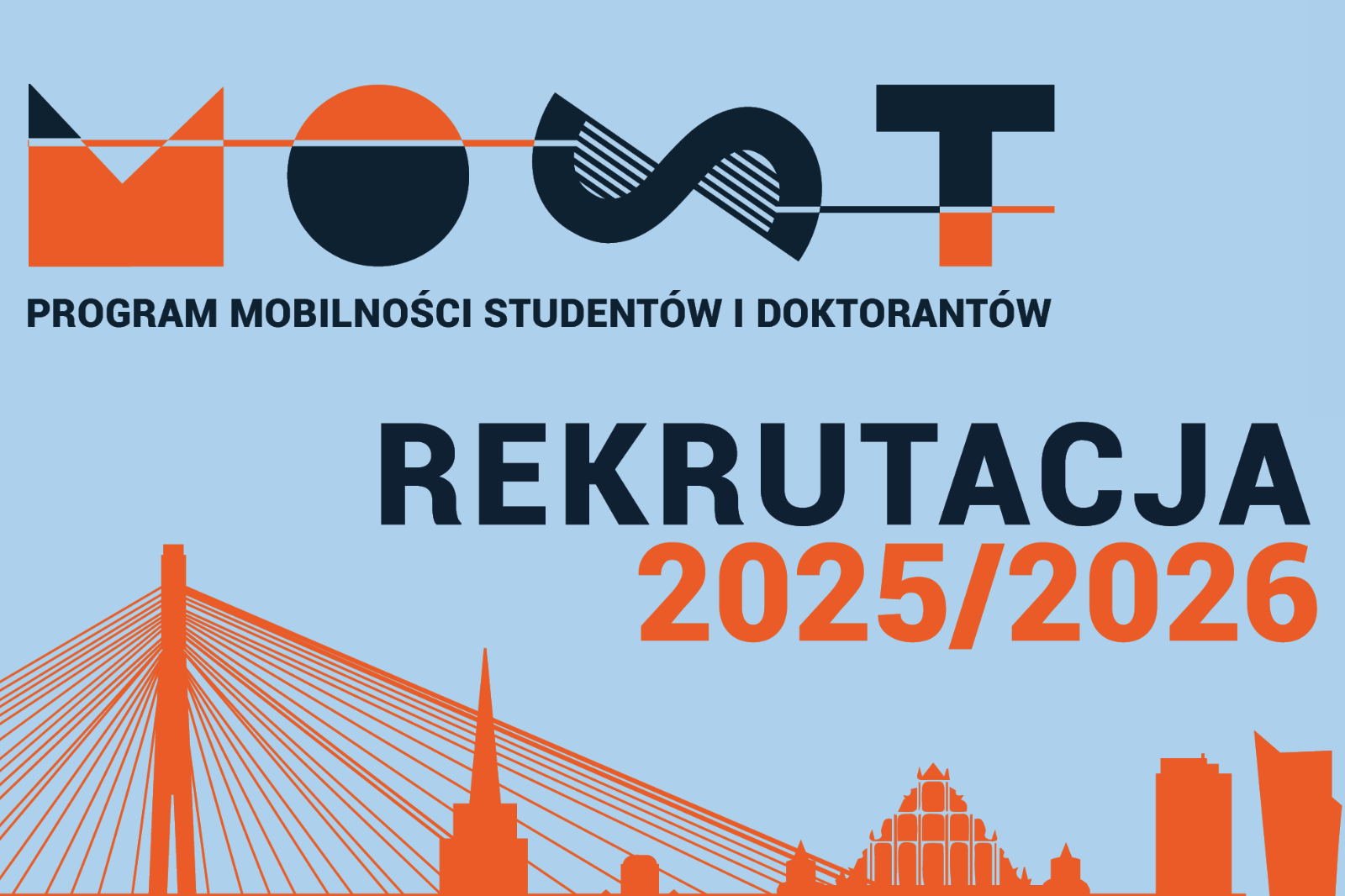Weird Fiction Research Group kindly invites you to the third Weird TV meeting in spring semester. ASC student, Julia Michalak, will introduce you into the subject of Horror in Kids’s Movies!
Tuesday, March 18, 2025
5 pm
*3 OZN*

Where?
Dobra 55, room: 2.118
(the building features some mobility accommodations: ramp and lift)
What?
Horror in children’s media has evolved significantly over the years, carefully balancing fear with resolution while reflecting changing cultural perceptions of childhood and psychological development. In this presentation, I will explore how children’s horror differs from adult horror and examine the core fears that often shape these stories—such as abandonment, transformation, and loss of control. I will also discuss the history of children’s horror and how standards for what is considered “acceptable” have shifted over time. Early films like Snow White (1937), Pinocchio (1940), and Bambi (1942) featured dark and unsettling themes, using fear to reinforce moral lessons and evoke strong emotions. Over time, regulatory systems such as the Hays Code and the MPAA rating system sought to define appropriate content for young audiences, though films like Gremlins (1984) and Batman Returns (1992) still sparked controversy for their intensity. In recent years, children’s horror has become more psychologically mindful, with films like Inside Out (2015) focusing on emotional understanding of anxiety and fear. This presentation will explore whether modern children’s media has become overly protective or if it has found a healthier way to engage with fear. By comparing past and present approaches to horror in children’s films, I will examine its evolving role, psychological impact, and the balance between caution and creative expression in shaping young audiences’ emotional resilience.
Who?
Julia Michalak is a third-year BA student at the American Studies Center of the University of Warsaw. Her academic interests include American pop culture, graphic novels, gender studies and digital preservation. She is currently writing her BA thesis on graphic memoirs that explore unconventional perspectives of the Civil Rights era.



